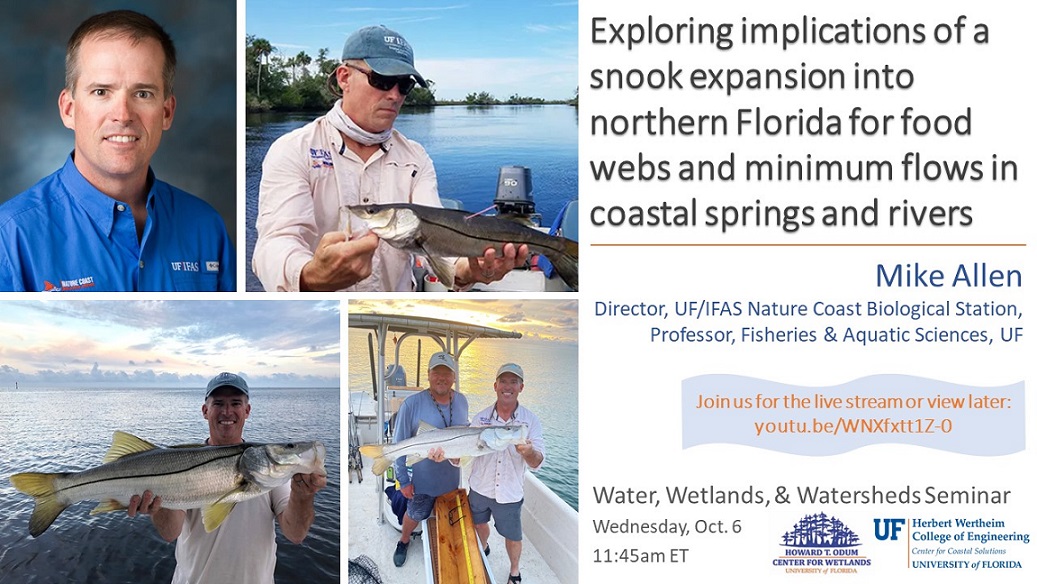October 6, 2021

Exploring implications of a snook expansion into northern Florida for food webs and minimum flows in coastal springs and rivers
Mike Allen, Professor, School of Forest, Fisheries, & Geomatics Sciences; Director, Nature Coast Biological Station, UF
Join us for the live stream Oct 6, 11:45am EST: youtu.be/WNXfxtt1Z-0
ABSTRACT
Globally, rising temperatures have resulted in numerous examples of poleward shifts in species distribution patterns with accompanying changes in community structure and ecosystem processes. In the Gulf of Mexico, higher mean temperatures and less frequent winter freezes have led to the expansion of tropics-associated marine organisms. We have quantified a substantial northern expansion of the Common Snook Centropomus undecimalis into the Cedar Keys area of Florida, USA (29 deg N). Using data from a long-term monitoring program, we report an exponential increase in catches of snook in the area since 2007, with a fully established and reproducing population by 2018. Snook have high diet overlap with native fish predators, and thus their expansion in this region could have strong food web implications. Further, evidence suggests that Snook are using coastal rivers and springs as thermal refugia during winter, and the degree of refuge habitat could be strongly influenced by freshwater flow rates. Here we present ongoing data collection and highlight collaboration among state and federal agency partners to assess the impact of Snook on coastal systems, including food web impacts and implications for setting minimum flow and level regulations.
Bio
Mike Allen is a professor of Fisheries and Aquatic Science in the School of Forest Resources and Conservation at the University of Florida. His research has focused on population dynamics and ecology of fishes. He uses field studies and computer models to explore population dynamics of fishes that support important recreational fisheries. He has evaluated habitat requirements for fish populations, and identified fisheries management strategies for recreational fisheries in lakes, reservoirs, and marine environments.
Dr. Allen has published over 120 articles in peer-reviewed journals, and co-edited three books. Over the past five years he has worked internationally with research projects addressing fisheries management issues Guatemala and Australia. He served as President of the Southern Division American Fisheries Society in 2013, and was given the Award of Excellence by the Fisheries Management Section of AFS in 2011.
Dr. Allen was appointed Director of the Nature Coast Biological Station in 2015, and he is working to build the research, outreach, and teaching programs to improve conservation and management of natural resources in this region.
POSTCARD
